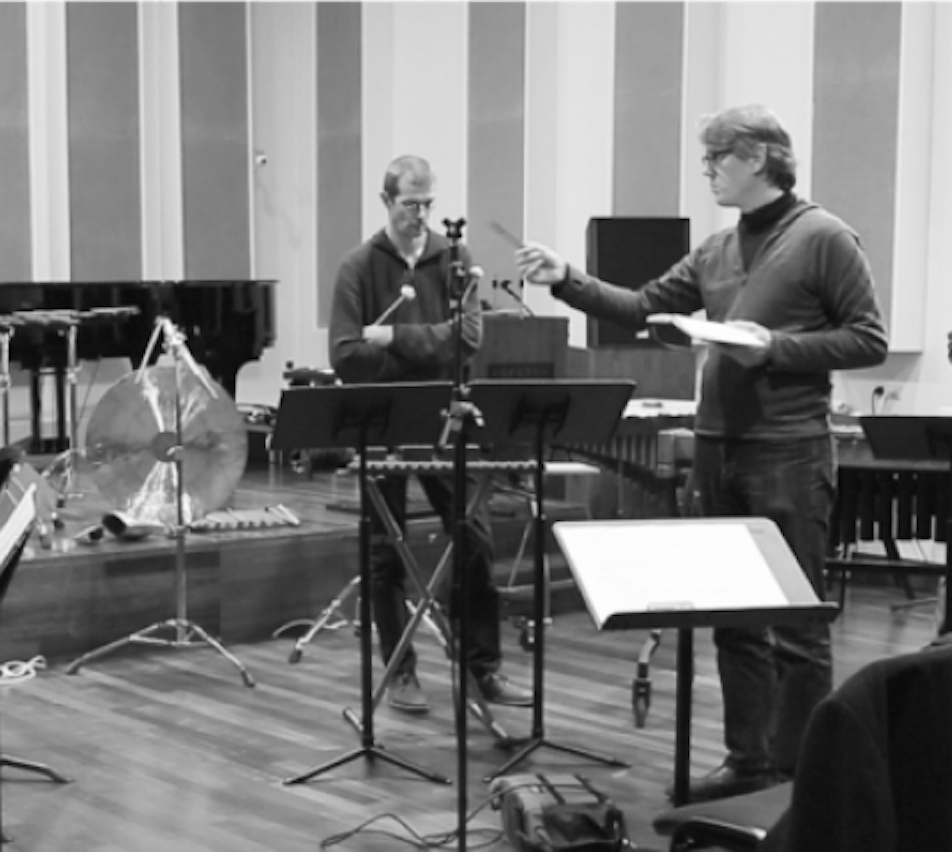

Geplaatst op 22 Jun 2023
The institute is looking for doctoral researchers who are interested in joining a research cluster in one of the areas described below. This open call is intended for musicians with an outstanding artistic record, with strong research skills, and transdisciplinary interests.
Doctoral researchers will become part of the core team of the respective research cluster.
Role
As a doctoral researcher in Artistic Research in Music you will be a team member of a research cluster at the Orpheus Instituut, while pursuing a docARTES doctoral degree.
Duration:
3 years
Financial support
A limited number of part-time research assistantships (€16,000 per annum) will be available. These positions require researchers to maintain a consistent presence at the Orpheus Instituut in Ghent.
Objective
The institute is looking for doctoral researchers who are interested in joining a research cluster in one of the areas described below. This open call is intended for musicians with an outstanding artistic record, with strong research skills, and transdisciplinary interests.
Doctoral researchers will become part of the core team of the respective research cluster
As a member of Orpheus Instituut you will:
The applicant
Admission consists of two stages:
The Selection Committee welcomes applications that clearly address at least one of the key topics outlined below (research clusters).
Interested artist-researchers should email the respective cluster leader (see list below) with CV and statement of motivation (max. 400 words) in order to initiate a dialogue, as soon as possible and no later than October 15, 2023.
The deadline for the docARTES application is January 15, 2024. The programme itself will begin in September 2024.
Declassifying the Classics combines historical materiality, social culture, and communicative contexts as platforms for modern-day historically informed performance. Historical instruments are studied as tools for musical expression, but also as objects in their own right. Through reconstruction, enactment, and embodiment the cluster revisits familiar scores and explores unfamiliar ones to tell stories of men, women, and their things during a period that has stiflingly been called “classical.” One focus during the following years will be the late-Beethoven, applying perspectives of materiality and disability to a long-term study of his late piano music and string quartets.
Profile
Candidates are urged to develop a doctoral project that is dependent on one or more of the keyboard instruments already available at the institute. In addition, they should:
Overview keyboard instruments:
The Orpheus Institute has developed a collection of newly built historical keyboards as a laboratory for the study of late 18th century and early 19 th -century music. Viennese fortepianos by Stein (1786), Walter (1800), and Streicher (1816) are the backbone of this collection. But unique are the replicas of the two non-Viennese pianos that Ludwig van Beethoven (1770–1827) owned: his French Erard (1803) and his English Broadwood (1817). These were built as part of the research project “Beethoven and his Foreign Pianos.”
We presently house an exclusive collection for research in Beethoven performance on historical pianos. More broadly, the collection facilitates advanced research into the music of the Viennese classics (Mozart, Haydn, Beethoven, and contemporaries), and allows for a comparison with the other major centers of Paris and London.
The collection currently consists of the following instruments:
In addition, the following instruments, owned by the PI, may be brought to the institute for particular projects:
As part of a partnership with Pianos Maene (Ruiselede, Belgium), it is possible, finally, to request that a certain instrument from Pianos Maene be put on loan to the institute: this would need to be justified and discussed well in advance of a well-circumscribed project.
PI: Bruno Forment (bruno.forment@orpheusinstituut.be)
Established around the Ton Koopman Collection, a comprehensive library focused on the Baroque, Resounding Libraries aims to rethink the multifaceted role of libraries in artistic practice. The cluster is developing innovative tools and sustainable strategies for the digital retrieval and artistic reprocessing of archived musical knowledge. It furthermore seeks to critically remap music within the intermedial data space of the present, past and future, questioning standard formats of music performance and creation.
Profile
Resounding Libraries is looking for doctoral researchers (performers, composers, producers, sound designers, etc.) addressing one or more of the following topics:
PI: Luk Vaes (luk.vaes@orpheusinstituut.be)
HIPEX is a collective of artistic researchers applying methods of HIP music making in order to critically engage with 1960s-70s performers and their performances of experimental music.
Profile
HIPEX is looking for doctoral researchers to investigate one of the next topics or areas of interest in the framework of a doctoral project:
PI: Jonathan Impett (jonathan.impett@orpheusinstituut.be)
Music, Thought and Technology (MTT) investigates the fundamental role of technology in shaping thought and practice in music. MTT explores the present and future reconfiguration of the practices, artefacts and understanding of music. Its researchers are all active practitioners in contemporary and electronic music, improvisation and sound art, pursuing individual and collective projects in artistic research.
Profile
MTT has an opportunity for doctoral researchers with an artistic research project in one of the following areas:
PI: Paulo de Assis (paulo.deassis@orpheusinstituut.be)
MetamusicX explores novel performative and compositional creative practices that intersect music (past and future), art, digital humanities, and contemporary philosophy. This research cluster focuses on three primary research areas:
In its combination of practice-based research and conceptual investigations, MetamusicX reevaluates the role, function, and purposes of musicians in contemporary society, arguing for a new breed of musicians — ones who are not only skilled in their craft but are also capable of operating at the intriguing boundaries of human and posthuman creativity.
Profile
Candidates should:
Orpheus Instituut aims to create an environment where all talents can develop to their maximum potential, regardless of gender, age, cultural origin, nationality or disability. The institute strives to be a diverse and inclusive workplace.
If you have further questions about this open call, please contact Dr. Jonathan Impett, Director of Research (jonathan.impett@orpheusinstituut.be).
Download the application guidelines to prepare your application.